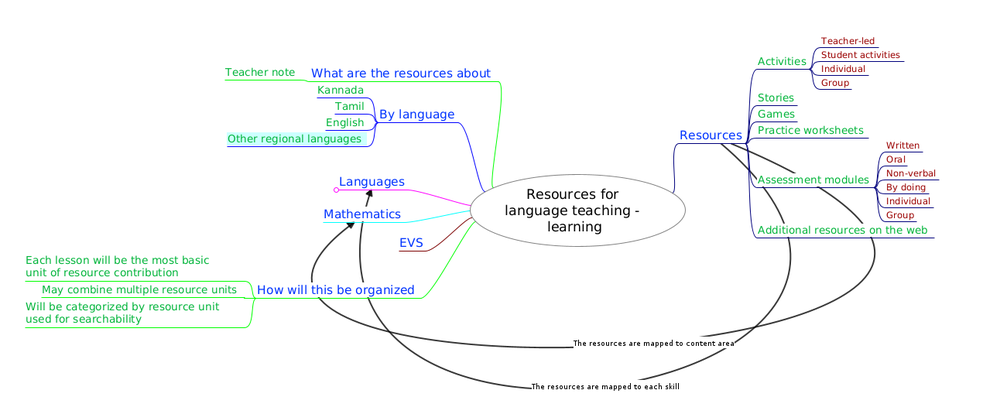From Open Educational Resources
Jump to navigation
Jump to search
|
An introduction to the education resource repository
With governments across the country tentatively beginning to reopen schools it is very important
for us to look at ways of supporting teachers and school administrators to resume teaching-
learning practices. In the current context, children are coming back to school after a
very abnormal disruption, and in many cases after major disruptions in their lives.
While there are many aspects of this school reopening that would be like the annual reopening
after vacations, there are some very crucial ways in which it would be different. Additional resources and tools are needed for responding to this requirement – for teachers,
students, parents and school administrators. These resources also need to be flexible and allow
for the school system to respond to the immediate requirement as well as for responding to any
further school disruptions/ changes . While teachers are expected to create and use resources
to respond to the situation, they have not had any special preparation to do so. The repository
is intended to be a participatory, supportive space for meeting this need.
[More]
|

|
Language resources
The teacher needs to have resources that are able to support the children in language acquisition at the levels they are - ranging from building/ reinforcing early language skills to grade-appropriate reading materials. These are not meant to be supplementary resources for the textbook, rather a set of resources for teachers to address the language learning needs of the children, at the level they are. [Read more...]
|
|
|
Mathematics resources
While there is a push for schools to reopen and there is talk of accelerated learning, It is not meaningful to think of a bridge course and try to deliver all the lessons of an entire academic year and expect students to catch up on the grade-level mathematics. We need to develop resources a sequence of lessons for the core areas of school mathematics - focusing on Classes 1-6. [Read more...]
|
|
|
Environmental Studies and Ecology
This is an opportunity for us to re-imagine the way learning happens in schools, focusing on a more integrative approach. Observing the nature and local environment and bringing it into the curriculum both allows the learning to be contextual while also providing pegs for building numeracy and literacy skills. [Read more...]
|
|
|
Socio-Emotional Learning
As children (and teachers) return to school after an extraordinary disruption, it is essential to support them with resources to re-establish relationship and trust. Resources in this section are being compiled with that objective and are not to be seen as a substitute for professional mental health support.
|
|
|
Student learning materials
Students need adequate materials for practicing skills and we have attempted to compile multiple resources for various concepts. These worksheets will be categorized by skill and age group and can also be accessed from subject areas
|
|
|
Inclusive education resources
Resources and strategies for working with children with learning difficulties
|
|
|
Digital learning resources for teachers
The need is more urgent than ever for teachers to develop digital skills both for creating resources as well as for delivering lessons online. This is a compilation of resources for the teacher to build their digital skills [Read more...]
|
|
|
Strategies for mixed level teaching
These resources are intended as exemplars of how lessons can be developed to address students at multiple levels of learning - using content areas in the case of mathematics and environmental studies. [Read more...].
|
|
|
Art, Games and Hands-on Activities
These resources are intended as exemplars of how games and play can be integrated into the teaching-learning process. [Read more...].
|
|
|
Strategies for Assessments
These resources are intended as exemplars of how assessments - formal, informal, continuous - can be done to address students at multiple levels of learning - using content areas in the case of mathematics and environmental studies. [Read more...].
|
|
